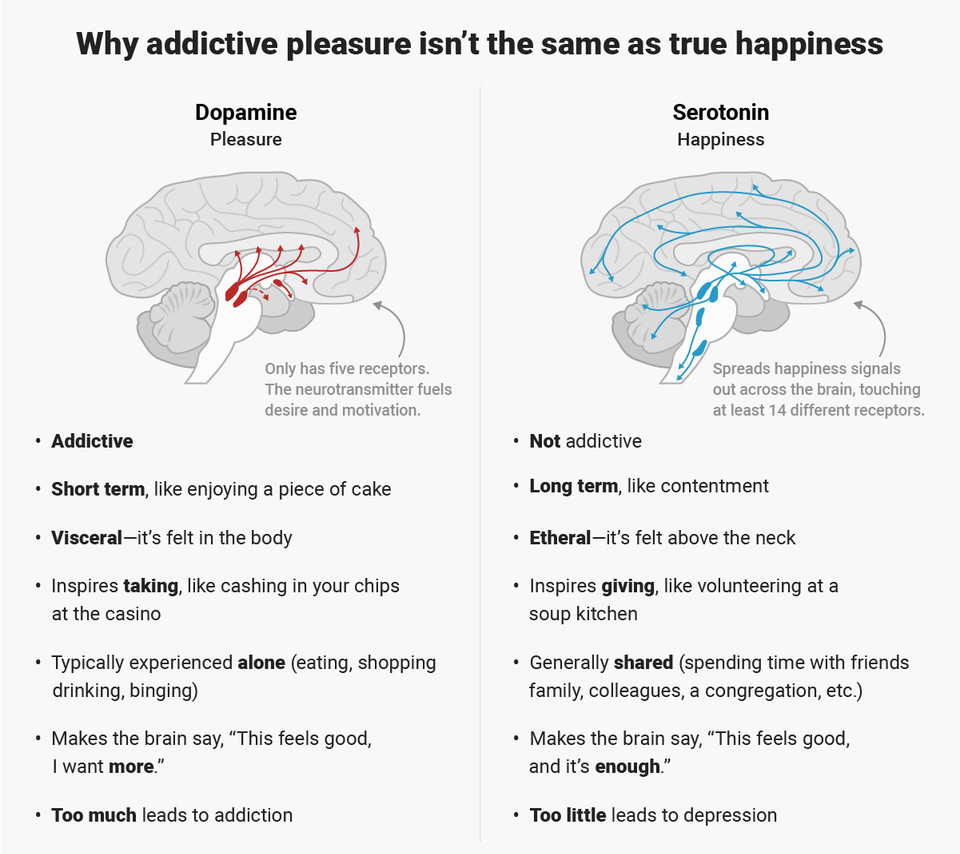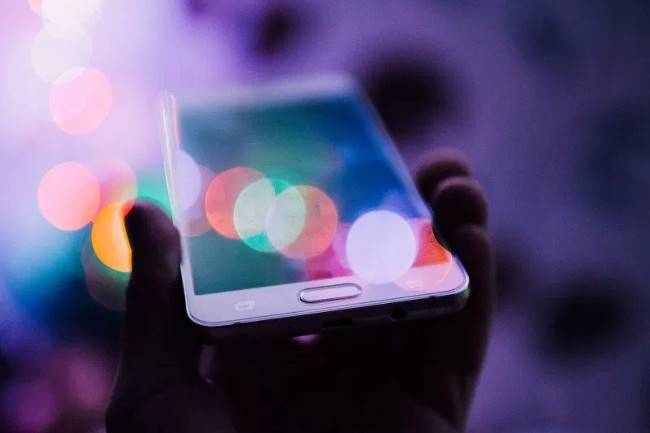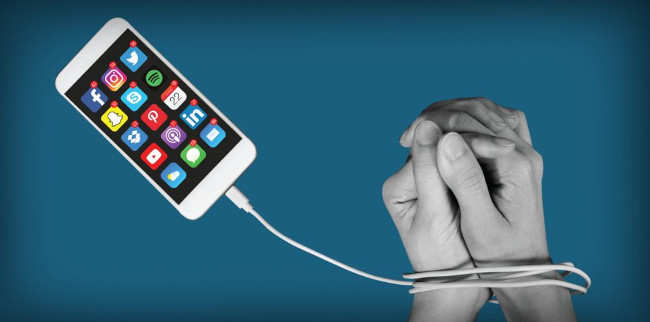How do smartphones change people's brains?
Regardless of the physical consequences, these are some of the harmful effects of excessive smartphone usage. Let's TipsMake.com find out how smartphones make the human brain change in this article!
- Childhood is true when there is no smartphone, right?
- 6 clear signs that your phone is hacked
- Top 10 smartphone secret features you will want to use immediately
Not yet affirmed with the argument that technology is destroying the human brain, scientists warn smartphones as addictive and can produce depression and many other harms.
When smartphones and smart devices become so popular, it makes us very dependent. It is not natural for science to warn about diseases of the digital age such as text neck (neck message) and trigger finger . It's all because people are using their phones too much.
Many of us have a habit of checking the phone almost anytime, anywhere. Just 5 minutes without looking at the phone starts to feel uncomfortable and uncomfortable.

All day we are 'flooded' in interruptions and warnings from mobile devices. The smartphone vibrates the bell to wake us up, notifies new messages in the inbox, messages from colleagues and friends at the back of the screen and how to 'support' verbally.
This disruption seems reasonable to the human mind: we want technology to support a busy life, making sure not to miss any appointments and important information.
However, the human body is different: Receiving a continuous message stimulates stress hormones, a faster heartbeat, rapid breathing, persistent sweat glands and muscle tension.
You simply should not live such a life!
 Photo source: Garry Knight / Flickr (CC)
Photo source: Garry Knight / Flickr (CC)
Mobile applications are taking advantage of the need to control security and social interaction. Researchers found the terrible thing could happen: 89% of US college students suffer from " imaginary phone vibrations ", which is to imagine that their phones are vibrating, but in fact are not. Have a call or message.
Another study found that 86% of Americans have strange habits that keep them constantly checking their email and social media accounts without any notice. This makes them feel really tired. The use of smartphones has become a popular behavior that is frightening in everyday life.
Interview with Business Insider, endocrinologist Robert Lustig explains the announcements from smartphones that the human brain falls into tension and fear almost every time, making it an indispensable part. This state means that the prefrontal cortex, a part of the brain, often functions with the highest cognitive function, causing confusion in the cognitive ability of the brain.
' You should end those stupid deeds. Because these stupid things can cause you trouble, 'Robert Lustig said.
The human brain can only do one thing at a time
 Normal human brains can't multitask.Photo source: Samantha Lee / Business Insider
Normal human brains can't multitask.Photo source: Samantha Lee / Business Insider
Scientists have long come up with a view that not everyone admits, that is, people in nature cannot work multitasking . This is true for about 97.5% of the population. Meanwhile, the remaining 2.5% are strangers, but according to the scientists' language, " super taskers ". These " superpowers " are really capable of doing many tasks at the same time, such as driving and calling without affecting the ability to control the vehicle.
However, in 50 people there is only one person with this ability, the rest of us only really focus on a single action. That means that when we turn our attention to a message or a tone from the phone, other jobs will be interrupted and this is called a " conversion cost ."
The bottom line is that this interruption makes us not realize its existence because it usually happens very fast, only about 1 in 10 seconds. However, if this situation is repeated, combined with the messy thoughts between ideas, conversations, . can increase the brain vulnerability.
Psychologist David Meyer has studied this impact and estimates that switching between tasks can use up to 40% of the brain's productivity, thereby making the brain unable to " spend effort " on other tasks. .

In your current life, you must always keep your attitude calm, not in a hurry, to make accurate decisions. In addition to being in a high alert state, the cortisol hormone in the brain will be released more. Cortisol is considered a stress hormone , making it easier to stress, overreacting, even depression. Our reaction to the outside world, even with our own thoughts, is slower.
According to Professor Turkle, every time you pick up the phone to look up something, it's like stepping out into the wild. You " hunt " information there and push the brain into a state of vigilance, concentration.
" Each time switching different tasks, the body is given a stress hormone dose ," Lustig said.
In other words, the stress that we build by trying to do many things at the same time can actually make us sick, making us crave for more disruption and stimulation of dopamine.
The more smartphones you use, the more lazy your brain will be

According to research by scientists, the adult brain has a huge processing speed, equivalent to 60 bits per second.
The more tasks we have to perform, the more we will be able to make choices about how we want to use the power of the brain. Therefore, it is understandable that we may want to complete the extra volume thanks to phone and digital support.
However, there is some evidence that entrusting thinking of tasks to devices not only makes our brain tired but also makes them lazy.
This also explains the benefits that smartphones or AI bring in sharing less work with users. In addition, we are increasingly looking for information using smartphones instead of traditional methods.
But according to scientists, this brings unexpected negative effects. Of course reading new information on the phone can be a good way to learn. Researchers point out that people who get information from a book, instead of electronic devices, often develop a deeper understanding and more thinking.

A recent study conducted on dozens of smartphone users in Switzerland showed that staring at the phone screen made them feel tense and their fingers became restless.
Using smartphones brings many harmful effects, including addiction and depression in both men and women.
In a study published in March this year, psychologists and computer scientists discovered an unusual connection and could become problematic: That's when we clicked or press the screen with your finger. The more we do something regularly, the faster, better and more efficient we do. In particular, as more and more of these actions are performed, human brain signals become more and more complicated.
According to the explanation, scientists think that learning knowledge, or specifically social behavior requires more resources and a process from just one signal, finger to eye to brain. . It seems that the more smartphone users use, the more "brainless" the brain becomes.
 Photo source: Flickr / André-Pierre du Plessis
Photo source: Flickr / André-Pierre du Plessis
Should the use of telephones be banned in public places?
Although these findings are annoying, scientists do not say that experiencing mobile applications is harmful. We need to know that there are certain uses that are particularly harmful.
Facebook testing is proven to cause many young people to feel depressed. Researchers have studied the sense of happiness of students who have a direct relationship: the more you check Facebook regularly, the more you feel bored. Besides, games like Pokemon GO or applications like Twitter can be addictive; and will make your brain crave for something else.
 Photo source: Getty Images / Spencer Platt
Photo source: Getty Images / Spencer Platt
The addictive app is built to bring rewards to the brain, an exciting moment when someone likes photos or comments on your posts. Like gambling, you can't predict the schedule. It's called a "rate conversion schedule" and that makes the human brain "crazy."
This technique is not only used by social media, but also on the Internet. Air ticket price decreases when you click. Facebook notifications change based on friends and what they're referring to. We must have it all, we must have more and now we must have it.
Lustig said that these types of applications are not "bad". They only become problems when given freedom to disrupt our concentration, entice the desire for fascinating experiments, deceive the brain about always wanting more.
" I'm not an anti-tech. I love technology because it's specially designed to help you keep looking ," he said.
Lustig said he wanted to change this by drawing the boundaries around socially acceptable smartphone use. If we can ban the use of smartphones (such as smoking inside the building), at least people will limit access time to electronic devices, helping their brains to rest.
"My hope is that we will go to a place where you can't pull out cell phones to use in public ," Lustig said.
Refer to some more articles:
- 17 smart gadgets on smartphones make life easier
- 9 great hidden features on Android you may never know
- Attendance of 10 positions is strictly forbidden to place the phone
Having fun!
You should read it
- ★ 11 daily habits silently destroy health without you knowing
- ★ If you do not want to reduce life expectancy, you should give up early 5 habits later in the morning
- ★ 7 habits are 'silently killing' you every day
- ★ 9 bad habits should be removed immediately if you don't want to get in trouble
- ★ 7 daily routines can ruin your health